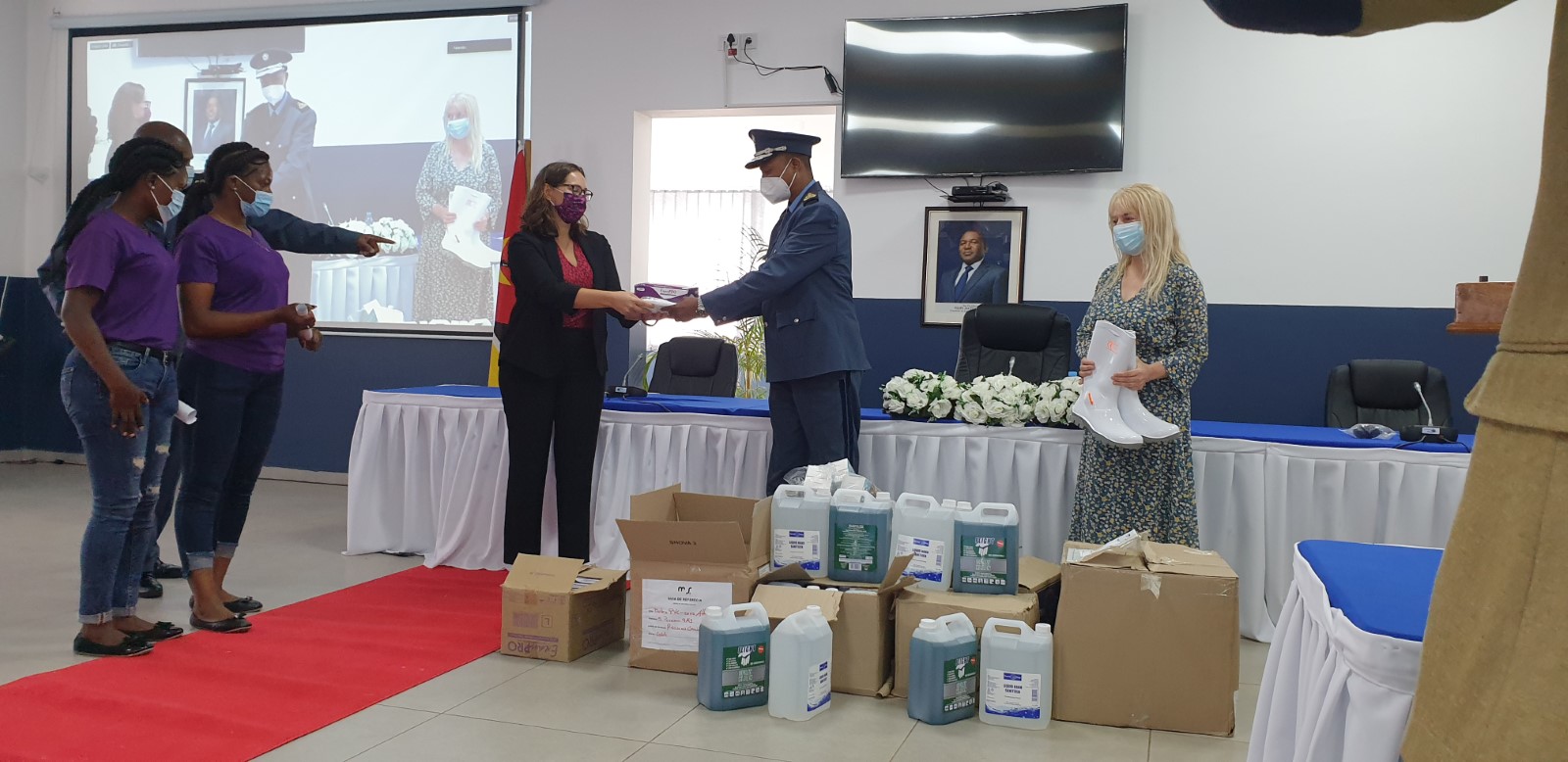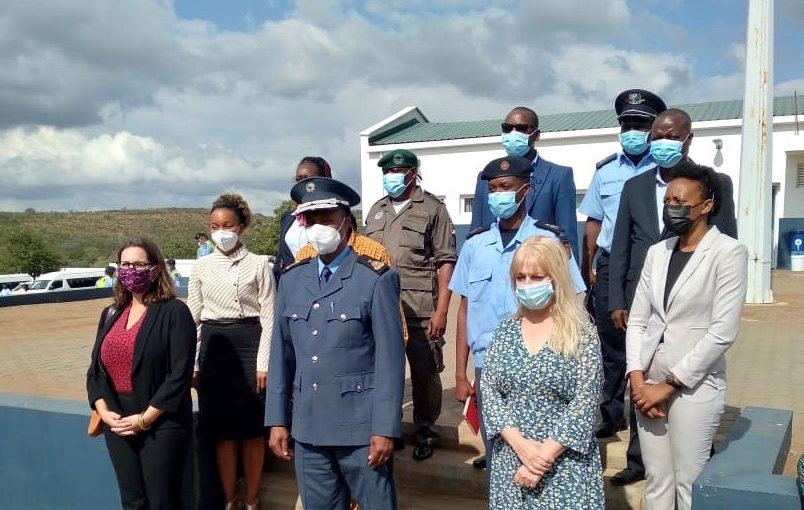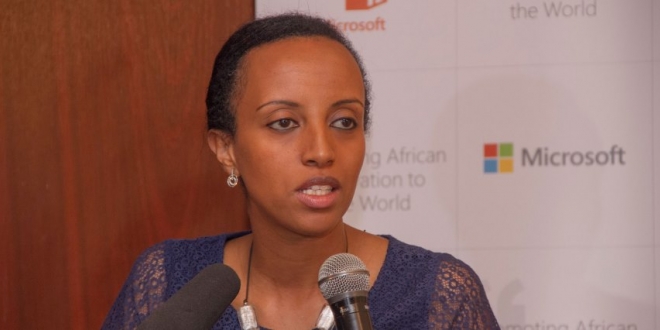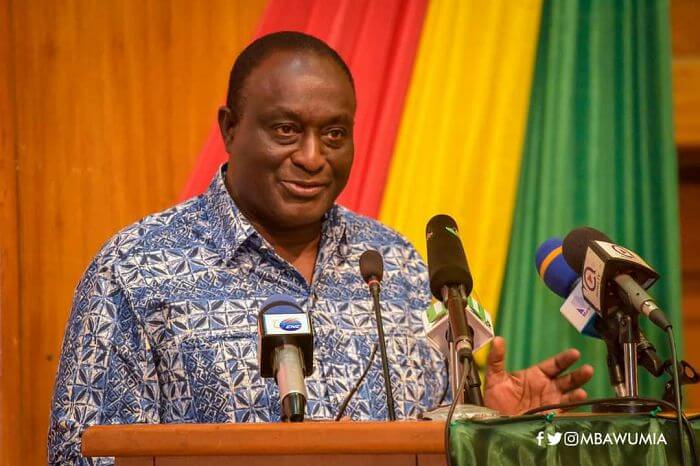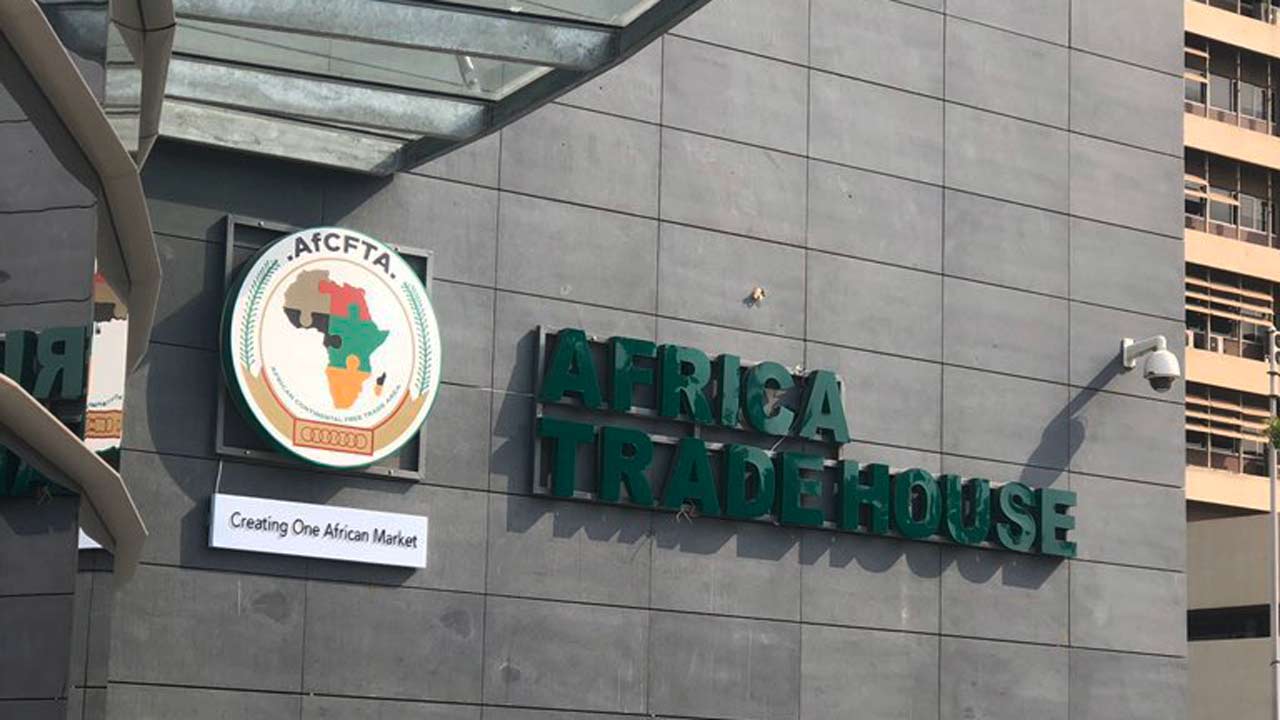Maputo, 18th May 2021: The Mozambique Revenue Authority (MRA), in partnership with TradeMark Africa (TMA), has delivered Personal Protective Equipment (PPE) which will be distributed to border authorities at the Mozambiquan and South African border of Ressano Garcia/ Lebombo. The delivery was witnessed by H.E. Taurai Tsama, Mozambique’s Customs Director General, H.E. Mrs. Nuala O’Brien, Ambassador of Ireland to Mozambique, and Mrs. Sarah Love, Deputy Director of Development at the British High Commission in Mozambique. The equipment provided include hand sanitizers, liquid hand washing soap, infrared thermometer, re-usable safety boots, full protective PPE, , reusable masks, plastic face shield, disposable gloves, hand sanitiser dispensers and disinfectant spray bottles This is part of TradeMark Africa’s wider support for mitigation measures against the spread of COVID-19 and continuous trade in Eastern and Southern Africa borders under its Safe Trade Emergency Facility Programme. Today’s symbolic handover will cover the needs of customs, immigration, security, and port health officials at Mozambique borders. Speaking at the ceremony, Sarah Love, Deputy Development Director at the British High Commission in Maputo said: “The UK is funding TMA in Mozambique and Malawi through the Safe Trade programme which is partnering with the Revenue Authority to implement measures to ensure that safe trade can continue during this COVID-19 pandemic. UK funding of £200,000 has enabled the purchase of Personal Protective Equipment for customs and border officials and the development of a joint emergency response to COVID-19 at these locations. This support will ensure a safe working environment for border...
Mozambique front line staff at Ressano Garcia border receive Personal Protective Equipment from TMA to support Safe Trade
Posted on: May 25, 2021
Posted on: May 25, 2021

